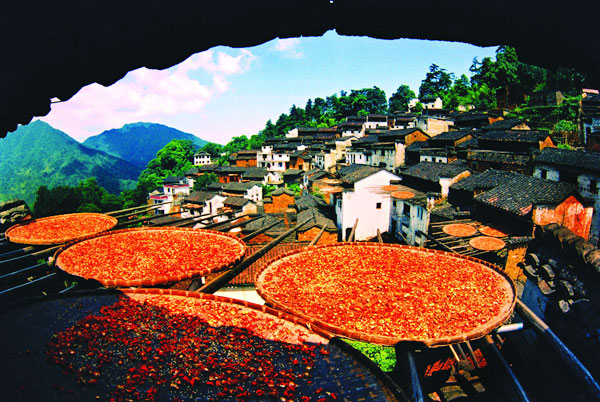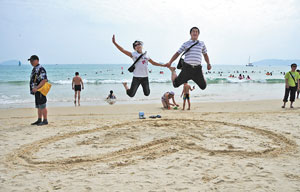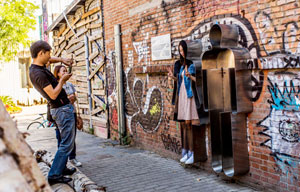Hillsides of gold, red and white
 |
|
Baskets of red chilies bask in the autumn sun before they appear on the dining table. Photo provided to China Daily |
The names of Wuyuan's villages usually include the character "keng", which means "stream" in the local dialect. This is how residents acknowledge the importance of the rivers that snake through their villages, sustaining communities that have nurtured countless generations of scholars, officials and tradesmen.
Two of Wuyuan's villages actually have the same name - Likeng - except they're written in different ways. To distinguish between the two, locals call one "Big Likeng" and the other "Small Likeng".
Small Likeng is better known and gets more visitors since it's only 12 km from the county seat. Its accessible location has brought the village both fame and commercialization. Several TV series and films have been shot here, and this has drawn even more visitors.
Most homes located on the riverbanks double as shops and hostels. They sell camphor tree products, rice wine and local snacks. The sounds of vendors calling out their wares and tourists bargaining with them create a lively rhythm.
One upside of Wuyuan's commercialization is the quality of its tourist services. Among all the county's villages, Small Likeng probably has the widest selection of restaurants, bars and hostels to suit customers of every budget. Big Likeng, on the other hand, is much quieter and relatively untouched.
Situated on a hill 56 km from the county seat, Big Likeng is quite hard to reach. Visitors need to take a car or motorbike taxi to traverse the winding mountain road, which is sometimes blocked by soil that rain has eroded.






















